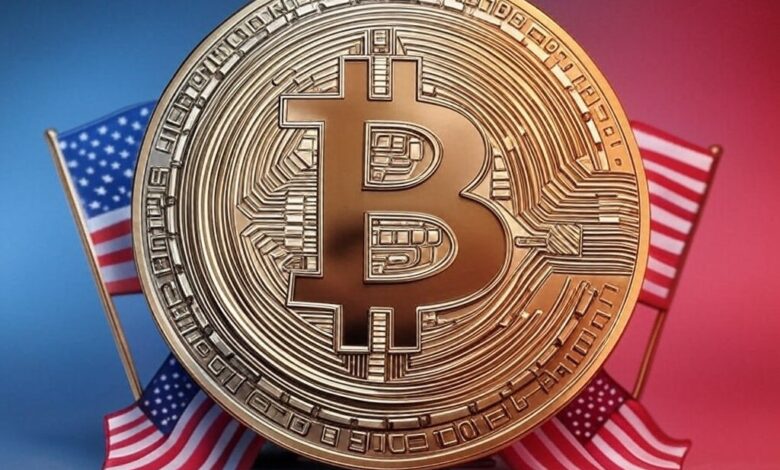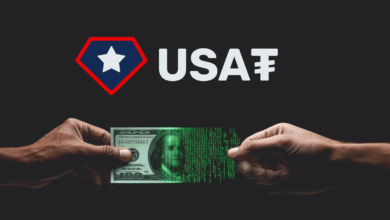Trump to Sign Order Protecting Crypto Firms from Banking Sanctions, SEC Toward Recognizing Stablecoins as Cash Equivalents

U.S. President Donald Trump is preparing to sign an executive order aimed at shielding cryptocurrency companies and conservative organizations from what his administration describes as discriminatory banking practices.
The forthcoming order mandates federal banking regulators to scrutinize potential violations of credit equality laws, antitrust statutes, and consumer protection regulations whenever financial institutions terminate client relationships.
This directive is seen as a response to ongoing concerns over the systematic denial of banking services to crypto firms and politically conservative entities, a phenomenon critics have labeled “Chokepoint 2.0.”
Reports highlight specific cases, such as Bank of America’s closure of accounts belonging to a Christian organization in Uganda, which the bank defended by citing policies against servicing small foreign businesses. The order also touches upon the role banks played during investigations into the January 6 Capitol riot, an issue that has sparked extensive debate.
Trump, who has personally criticized major banks for their treatment of his businesses during the Biden administration, asserts that federal regulatory agencies, rather than bank executives, hold the real power behind such banking relationship decisions. The executive order calls on regulators to dismantle internal policies that may facilitate discriminatory banking practices and encourages small businesses to review their banking partners to ensure compliance.
Meanwhile, major banks are reportedly revising policies related to political discrimination bans and engaging with Republican state officials to affirm their commitments.
Coinbase, a leading cryptocurrency exchange, continues legal efforts to uncover documents related to the alleged “Chokepoint 2.0” operations. The company’s chief legal officer recently accused the Federal Deposit Insurance Corporation (FDIC) of obstructing court-ordered disclosures aimed at exposing these practices.
White House Digital Asset Working Group head Bo Hines confirmed that administrative actions are underway, with expectations for imminent announcements. If signed, the executive order would direct federal agencies to dismantle policies enabling banking service denials, refer violations to the Department of Justice, and review how the Federal Reserve manages digital asset firms’ access to critical banking infrastructure.
However, legal experts caution that executive orders cannot create new protections but only enforce existing laws. The absence of a clear legal definition for “political discrimination” and the lack of federally protected status for political affiliation may limit the order’s enforceability and expose it to legal challenges.
SEC Eases Path for Stablecoins
In parallel regulatory developments, the U.S. Securities and Exchange Commission (SEC) has issued temporary guidance recognizing certain U.S. dollar-backed stablecoins as cash equivalents in corporate financial statements. This move forms part of a broader initiative led by SEC Chair Paul Atkins to modernize digital asset regulations.
According to Bloomberg Tax, stablecoins qualifying under these guidelines must meet strict criteria, including full backing by cash or Treasury securities, a fixed 1:1 peg to the U.S. dollar, and guaranteed redemption rights. This effectively aligns such stablecoins’ risk profile with traditional cash rewards, while excluding algorithmic stablecoins, yield-bearing tokens, and assets not pegged to the dollar.
This policy shift removes a significant accounting barrier that has hindered institutional adoption of digital assets and simplifies financial reporting for companies exposed to these assets. It also complements the recently enacted GENIUS Act, signed into law by President Trump in July, which establishes mandatory reserve requirements and public audit processes for regulated stablecoins, classifying them as financial instruments distinct from securities or commodities.
Nonetheless, uncertainties remain regarding the regulatory treatment of more complex or internationally oriented stablecoins. Analysts warn of unresolved risks, including redemption uncertainties, transparency gaps, and potential illicit use.
The SEC has emphasized that current guidance is provisional, with further regulatory rules forthcoming as part of its ongoing “Crypto Project” aimed at clarifying digital asset classifications and enhancing disclosure standards.





